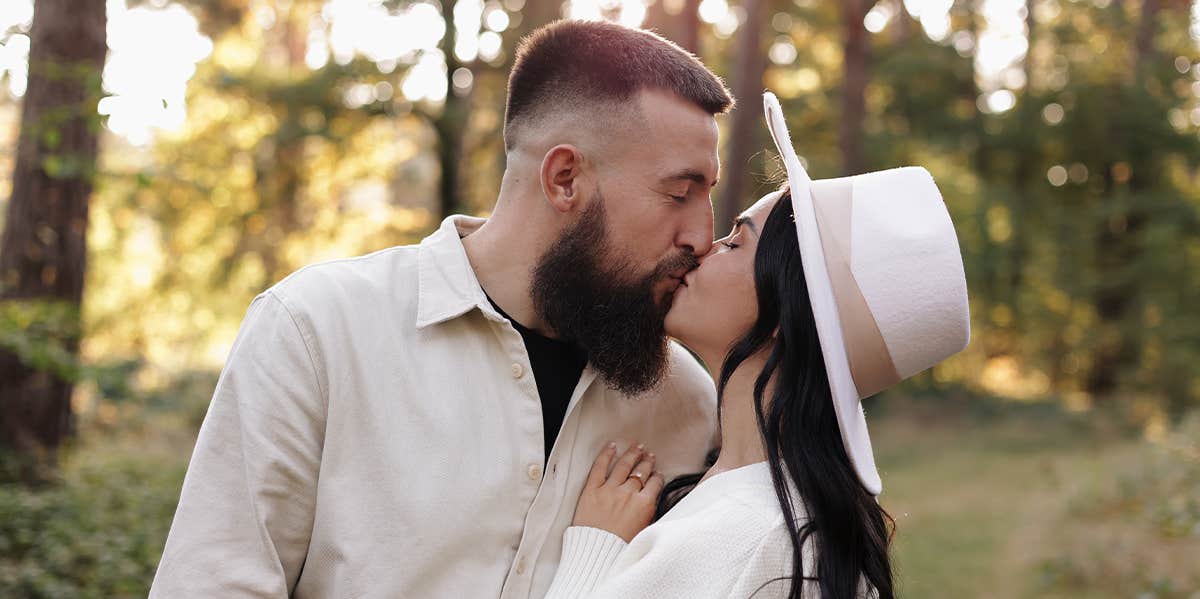Why Serial Monogamy Is Slowly Replacing Traditional Marriage
Might want to cross marriage off your list.
 Andrii Medvediuk / Shutterstock
Andrii Medvediuk / Shutterstock Although studies have found that 90 percent of us believe in the whole "happily ever after" bit, the reality is that marriage just isn't in the cards for many of us.
It's not that we're not marriage material or that we're opposed to the idea of locking it down legally; it's more that, as a society, we're just not getting married like in the good old days.
According to Dr. Helen Fisher, an anthropologist on all things regarding relationships and love, serial monogamy is where it's at. Marriage is just something your mom and grandma did.
As Dr. Fisher reports, the new norm is serial monogamy, whether or not we like it. Instead of one partner with whom we share our lives, we're destined to have a series of long-term relationships, albeit significant ones, but they won't end up in marriage.
Why serial monogamy is slowly replacing traditional marriage
Well, divorce rates don't exactly help. Statistics have shown that over 40 percent of first marriages end in divorce, and that percentage drastically increases with each subsequent marriage, reaching as high as a 70 percent divorce rate for third marriages.
However, those numbers pale in comparison to the amount of cohabiting couples who see an end to their relationships every single damn day.
Maybe we've just given up on the idea of forever love, but still, delude ourselves into thinking we believe in happily ever after. Not quite.
According to author and marriage expert, Stephanie Cootz, in the past 30 years alone, relationships have changed more than they did in the 3,000 years before. The reason for this huge change in just the last three decades has everything to do with expectations.
As Cootz explains in her book, Marriage, a History: From Obedience to Intimacy or How Love Conquered Marriage, "Never before in history had societies thought that such a set of high expectations about marriage was either realistic or desirable.
Although many Europeans and Americans found tremendous joy in building their relationships around these values, the adoption of these unprecedented goals for marriage had unanticipated and revolutionary consequences that have since come to threaten the stability of the entire institution.”
For the first time in history, the expectations we have for our partners and our relationships are higher than they've ever been. While in generations before, the research found that the majority of 20-something women would marry a man they didn't love, as long as he lived up to their personal list of important husband criteria.
The same cannot be said of women in the same age bracket today. Instead, women, today put the concept of a soulmate above all else. Finding "The One" is beautiful in theory, but as the stats show, it puts expectations way too high. And it's not easy for relationships to survive.
But before you stomp your foot and throw your dream wedding folder in the trash, take a step back and realize a very important aspect to all of this: wanting it all, the whole package, is not a bad thing.
In fact, it's a great thing. When you have high expectations, you're less likely to settle, and isn't settling worse than living in a society that's evolving past marriage? Let me answer that for you: yes.
It's time we modify how we see relationships and commitment — not just on an individual basis, but as an entire culture. The shift from marriage to serial monogamy because of expectations that just might be slightly unrealistic is just how it is, and it's something we need to accept it.
But it also means accepting the lesser of two evils: a life without marriage, or settling. Personally, I'll take the former.
Amanda Chatel is a writer who divides her time between NYC and Paris. She's a regular contributor to Bustle and Glamour, with bylines at Harper's Bazaar, The Atlantic, Forbes, Livingly, Mic, The Bolde, Huffington Post, and others.
